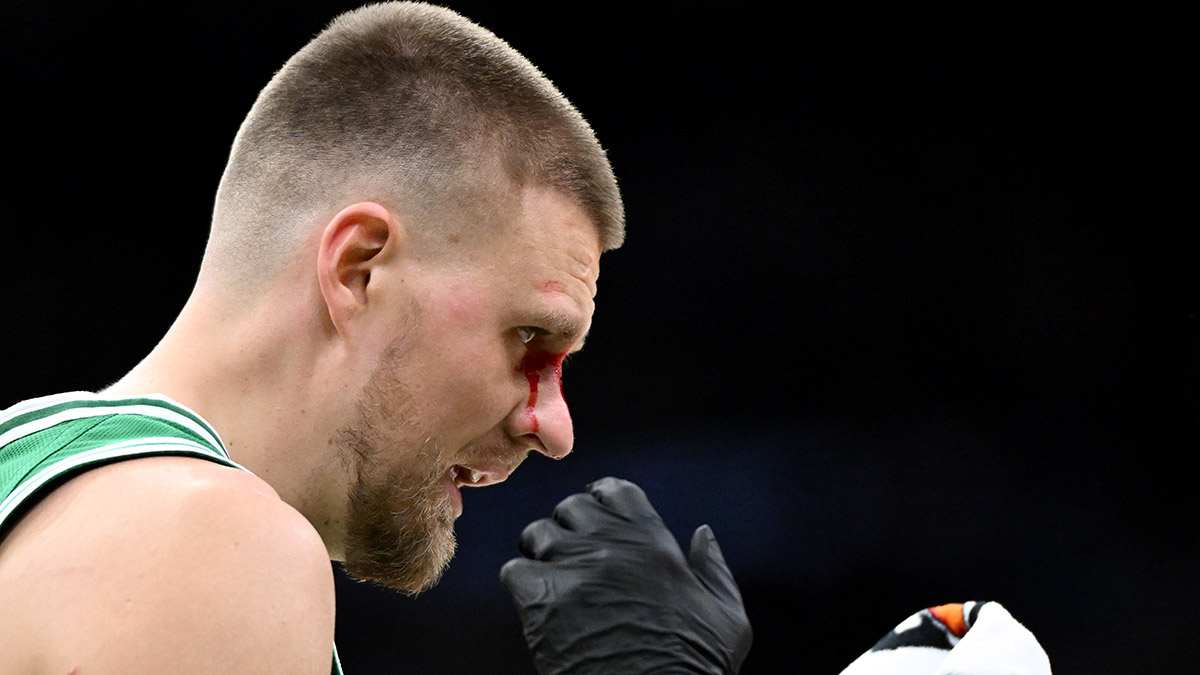
BOSTON – The tips and suggestions made by players and coaches to Amir Johnson after the Detroit Pistons drafted him straight out of high school in 2005 were plentiful.
Former Boston Celtic and Hall of Famer Dave Cowens, at the time an assistant with the Pistons, was among the contingent.
Cowens witnessed first-hand how Johnson handled himself against all-star big men like Rasheed Wallace, Ben Wallace and Antonio McDyess.
And as they pushed and prodded the then-teenage Johnson, Cowens noticed there was a constant to the young man’s game.
“He just kept coming,” Cowens told CSNNE.com. “He just kept going to work.”
And that work will now be on display with the Boston Celtics, who signed the veteran forward to a two-year, $24 million contract with the second year being a team option.
The 6-foot-9 Johnson doesn’t have the big-name sizzle that Celtics fans were hoping to lure to Boston this summer.
Boston Celtics
Find the latest Boston Celtics news, highlights, analysis and more with NBC Sports Boston.
But after having coached Johnson and watched his game steadily improve since then, Cowens is convinced he’ll fare well for the Celtics this season.
“If you don’t pay attention to him, he’s going to make you look bad,” Cowens said. “He’s one of those bunny (high energy) guys. He’s got a motor and he can run; he can really run.”
The addition of Johnson muddies up a frontcourt that has more talent than a year ago but far less clarity as to how it will play out.
Boston returns Jared Sullinger, Kelly Olynyk and Tyler Zeller, in addition to re-signing Jonas Jerebko. The Celtics also traded for Golden State’s David Lee.
The Celtics made no promises to Johnson as far as whether he’ll start, let alone play major minutes.
Johnson isn’t worried, though.
Most of his career, he has had to earn his way on to the floor by doing the little things, such as hustling for loose balls, grabbing offensive rebounds, or simply bringing a high level of energy to the game whenever his number was called.
And that, Johnson says, won’t change even after securing a contract with Boston that will pay him $12 million this season – the most he has ever earned for one season of play.
His former coach in Toronto, Dwane Casey, believes Johnson’s impact on Boston will be similar to what he brought to the Raptors – winners of two Atlantic Division crowns (2014-2015) during Johnson’s six seasons north of the Border.
To put that in perspective, the Raptors had finished first in the Atlantic Division just once (2007) prior to doing so each of the last two seasons.
“He’s a humble guy,” Casey told CSNNE.com. “He (Johnson) knows where he came from. He worked on his game and has improved really in just about every area. If you tell him he needs to get better at something, he’ll get after it and eventually he’ll get better. He’s just one of those guys that makes your team better.”
Cowens echoed similar sentiments about Johnson.
“There are certain players that come in with instincts you just can’t teach,” Cowens said. “Just instinctively, he knew where people were going to be and could feed them, he was great making passes, great offensive rebounder, quick jumper, not afraid of anything; just get in there and mix it up right off the get-go.”
The Celtics know first-hand just how good Johnson’s knack for finding the ball can be.
During Brad Stevens’ first year as Boston’s head coach, Johnson played a pivotal role in Toronto, his team at the time, defeating the Celtics, 105-103.
With the score tied at 103, Toronto point guard Kyle Lowry got a pick from Johnson, which led to Lowry being guarded by Jared Sullinger and Avery Bradley switched out on Johnson.
Lowry drove to the basket and missed a contested shot. But in came Johnson for the offensive rebound and moments later, the go-ahead put-back basket that wound up being the game-winner.
“Just hustling, man,” Johnson told CSNNE.com earlier this summer. “Just working hard to be in the right place at the right time.”
And the right place and right time for him now is in Boston with the Celtics.
As much as Johnson has been embraced by Celtics Nation, he’ll be equally missed by the Raptors.
“He went from a role player to a very big piece of what we were doing,” Casey said. “He became the core of what we were doing in Toronto. We went from a young, up and coming team to grow. We’ll miss his leadership, his toughness. He has a quiet toughness about him that we will miss with our team.”


